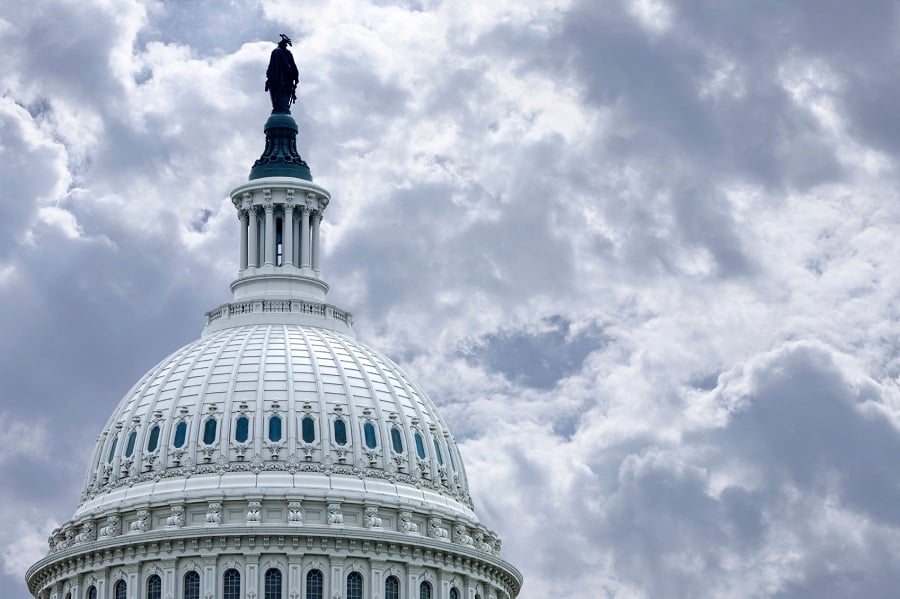

The battle over authority of cryptocurrency regulation is heating up as the GOP pushes back on Securities and Exchange Commission Chair Gary Gensler’s call for Congress to grant the SEC more authority over cryptocurrency.
Rep. Patrick McHenry, R-N.C., ranking minority member on the House Financial Services Committee in a statement Wednesday argued that Gensler’s latest move to ask Congress for jurisdiction of non-securities exchanges is a “blatant power grab that will hurt American innovation.”
McHenry argues that his bill, H.R. 1602, the Eliminate Barriers to Innovation Act, which would require the SEC and Commodity Futures Trading Commission to establish a working group on digital assets, would “bring regulatory certainty to market participants and regulators” versus “another backroom deal between Gensler and [Semator] Elizabeth Warren,” he said.
Gensler’s made his remarks aimed at Congress at the Aspen Security Forum last Tuesday. Gensler repeated the sentiment in an Aug. 5 letter to Sen. Elizabeth Warren, D-Mass., expressing his belief that regulators need more resources to protect investors. He also said that lawmakers should give watchdogs clear powers to write rules for exchanges, including decentralized finance, or DeFi, trading venues.
“We need additional authorities to prevent transactions, products and platforms from falling between regulatory cracks,” he wrote in response to questions from Warren about his plans for policing the industry. “Regulators would benefit from additional plenary authority to write rules for and attach guardrails to crypto trading and lending,” Gensler wrote.
Gensler also argues that additional authority could help tackle the amount of fraud, scams, and abuse the digital asset class has brought. For example, on Tuesday, hackers returned about half of the $610 million or so they stole in what was likely one of the biggest cryptocurrency thefts on record in the DeFi sector.
The back and forth between Gensler and Warren and the subsequent GOP pushback comes during a busy week for cryptocurrency regulation on the Hill. A provision, tucked inside of the bipartisan $1 trillion infrastructure bill, placed a spotlight on crypto tax reporting, and overall regulation of digital assets.
The provision would require tax reporting for transactions similar to securities. The measure seeks to ensure that details about digital transactions -- such as purchase price, gains and losses -- are reported to the IRS.
Over the past week, the crypto tax provisions in the infrastructure bill have become the subject of a legislative battle in the Senate, with multiple amendments to the bill proposed but no unanimous consent, before the infrastructure bill was eventually passed Tuesday.

President says he has a ‘couple of people in mind’ for central bank role.

Wall Street firm partners with Dutch online broker to fuel push into EU market.

Agreement with the US Department of Justice comes eight years after settlement.

Series C funding will accelerate unification of TAMP’s model portfolios.

While industry statistics pointing to a succession crisis can cause alarm, advisor-owners should be free to consider a middle path between staying solo and catching the surging wave of M&A.
Orion's Tom Wilson on delivering coordinated, high-touch service in a world where returns alone no longer set you apart.
Barely a decade old, registered index-linked annuities have quickly surged in popularity, thanks to their unique blend of protection and growth potential—an appealing option for investors looking to chart a steadier course through today's choppy market waters, says Myles Lambert, Brighthouse Financial.
